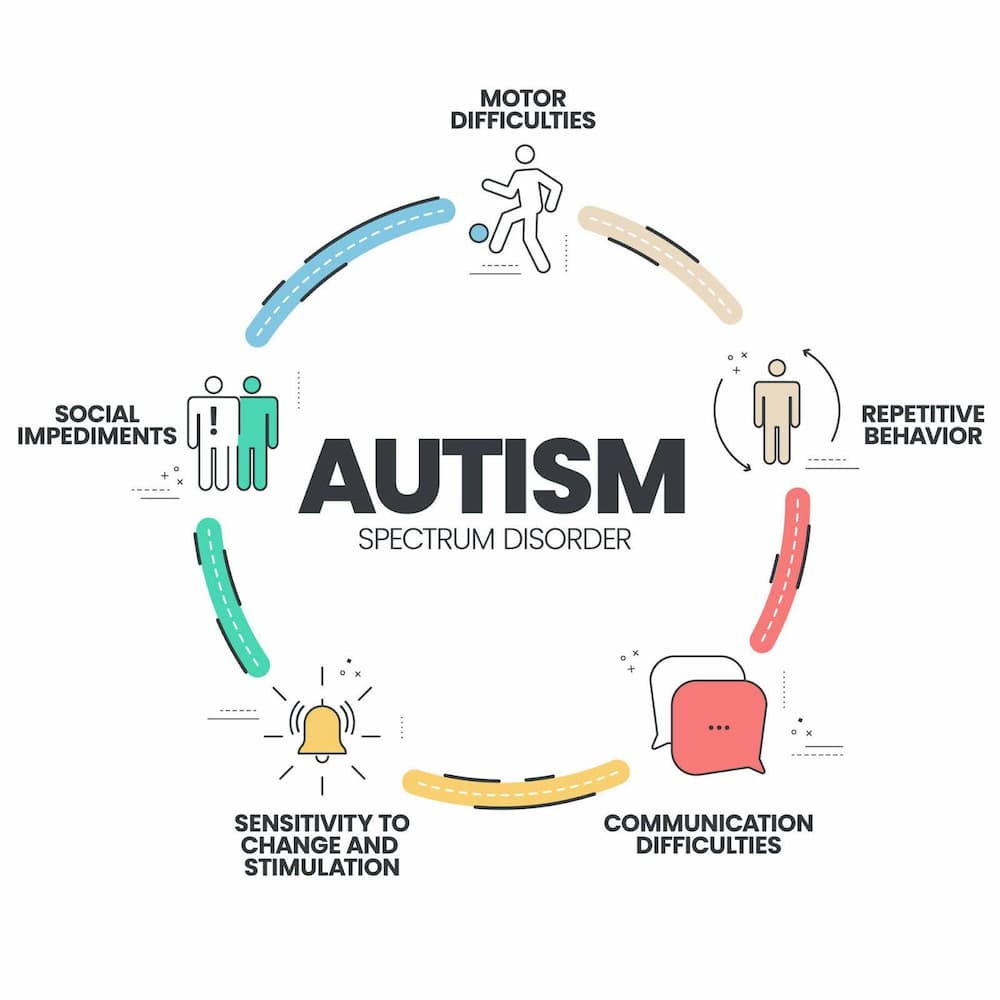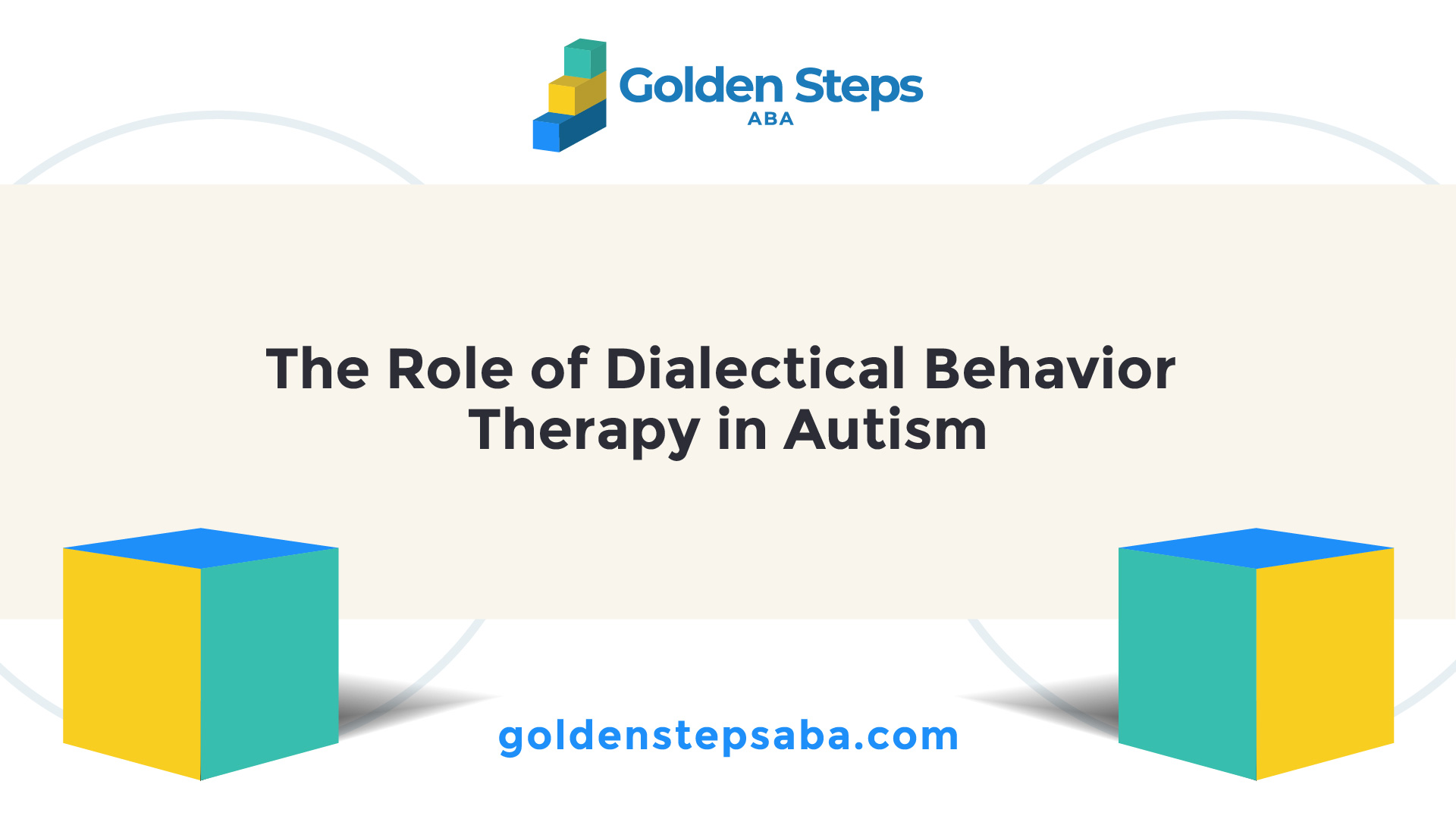Exceptional talents often seen by an Autism Therapist
Exceptional talents often seen by an Autism Therapist
Blog Article
Recognizing the Effect of Behavioral Autism on Day-to-day Live and Social Interactions
You could not recognize just how deeply behavioral autism influences everyday life and social communications. Individuals on the range typically browse a world filled with communication hurdles and sensory overload. These difficulties can lead to irritation and seclusion, affecting their relationships and overall health.
Defining Behavior Autism and Its Characteristics
Behavioral autism, often referred to as autism range disorder (ASD), includes a series of conditions defined by challenges in social interaction, interaction, and repeated behaviors. You might observe that people with ASD typically battle to analyze social cues, which can cause misconceptions in discussions. They may locate it hard to establish eye get in touch with or involve in small talk, making social circumstances really feel frustrating.
Communication troubles can show up in different methods, from delayed speech advancement to a choice for making use of fewer words. Repeated behaviors, such as hand-flapping or shaking, can function as coping systems to handle anxiety or sensory overload. These characteristics can exceptionally affect day-to-day live, making it vital for you to comprehend and sustain those with ASD. By identifying these attributes, you can foster an environment that advertises acceptance and encourages effective communication, assisting people with autism grow in their day-to-day communications.
The Spectrum of Autism: Comprehending Variability in Behavior
Autism range disorder (ASD) isn't a one-size-fits-all medical diagnosis; it differs commonly among individuals. You could discover that some people with ASD exhibit mild symptoms, while others may encounter a lot more substantial difficulties. This variability can manifest in habits, rate of interests, and sensory sensitivities. You might run into individuals that are very spoken and involve quickly in conversations, while others may prefer singular tasks or interact non-verbally.
In addition, the method individuals with ASD react to sensory input can vary substantially; some might be bewildered by loud sounds or bright lights, whereas others thrive in stimulating settings. The spectrum also includes distinctions in social communications; some people might struggle to translate social cues, while others navigate social setups with family member ease. Comprehending this irregularity is crucial, as it helps you appreciate everyone's one-of-a-kind experience and tailor support to their details needs, promoting a more inclusive setting for every person.
Interaction Challenges Dealt With by People With Autism
When you engage with people on the autism range, you may observe their unique interaction obstacles. They typically deal with difficulties with both nonverbal and spoken cues, which can affect their social communications. Understanding these barriers is essential for promoting much better links and assistance.

Verbal Communication Problems
Lots of individuals on the autism range experience verbal interaction troubles that can substantially impact their everyday communications. You could locate it testing to express your thoughts, sensations, or needs clearly. This can result in stress for both you and those around you, as misunderstandings take place. You might have problem with initiating conversations, keeping a subject, or understanding nuances in speech. Frequently, you could choose using easy language or repetitive phrases, which can limit your capacity to take part in deeper conversations. Your quantity, speed, or tone might not align with social assumptions, causing others to misunderstand your intents. Acknowledging these challenges can assist you and your support network develop techniques to improve interaction and cultivate better links with others in your every day life.
Nonverbal Communication Barriers
Spoken communication isn't the only obstacle individuals on the autism range face; nonverbal communication obstacles can be just as substantial. You could locate it difficult to translate body movement, facial expressions, and eye call, which are crucial for effective interaction. These challenges can cause misunderstandings or misconceptions of social signs, making interactions really feel complicated or frustrating. You may have a hard time to reveal your very own emotions via nonverbal ways, leaving others not sure of your intents or sensations. This detach can produce sensations of isolation and frustration. Recognizing these barriers is essential for fostering understanding and empathy in your interactions. By dealing with nonverbal communication, you can discover approaches to boost your social experiences and boost your overall top quality of life.
Social Interaction Impacts
Social communications can often really feel overwhelming because of the one-of-a-kind communication difficulties encountered by individuals with autism. You could deal with analyzing social cues, making it difficult to comprehend sarcasm or body language. This can cause misconceptions or unpleasant minutes in discussions. In addition, launching and maintaining discussions may feel challenging, triggering anxiousness in social scenarios. You may prefer organized settings, making spontaneous interactions unpleasant. It's also common to experience difficulty in engaging in little talk, which can hinder developing new friendships. Identifying discover this these challenges can help you find techniques to enhance interaction, such as practicing social skills in secure setups or making use of visual aids - Aba Therapist Near Me. Comprehending your demands allows you to browse social interactions with greater confidence and convenience.
Social Communication and Partnership Structure in Autism
While building relationships can be challenging for individuals with autism, understanding their unique perspectives and interaction designs can cultivate significant connections. You may notice that several individuals on the range prefer direct interaction and may battle with social hints or little talk. By being straightforward in your interactions, you can aid develop an atmosphere where they really feel comfy.
Involving in shared interests can likewise offer as a bridge to much deeper links. Whether it's a leisure activity, a favorite show, or a common passion, these usual strings can open doors to friendship.
Daily Life Regimen: Navigating Strategies and obstacles
Maneuvering life regimens can be especially testing for individuals with autism, particularly when unexpected modifications happen. You might find convenience in having a structured timetable, as it assists you expect what's following. When disruptions occur, it's typical to feel nervous or overwhelmed. To navigate these obstacles, take into consideration carrying out visual timetables or checklists. These tools can give quality and peace of mind.
Developing a routine that includes sensory breaks can likewise be useful. You can plan short breaks throughout your day to charge. It's important to connect with those around you, allowing them understand your demands and preferences. This assists develop an understanding atmosphere.
Last but not least, technique mindfulness strategies to manage stress and anxiety and anxiety. Basic breathing workouts or grounding methods can make a significant difference. By incorporating these strategies, you can enhance your everyday regimen and decrease interruptions, making life really feel more convenient.
Staminas and Abilities of Individuals on the Autism Spectrum
Recognizing life routines is simply one element of the autism experience. Several individuals on the autism spectrum have remarkable staminas and capabilities that set them apart. You could locate that your interest to information is exceptional, permitting you to master jobs that require precision and focus. Your capability to believe outside the box can bring about cutting-edge options in different scenarios.
Moreover, your memory abilities usually beam, specifically in locations of passion. Aba Therapist. This knack for retaining information can make you a beneficial source in fields like art, science, or modern technology. You may also exhibit strong aesthetic thinking, allowing you to visualize complex ideas and solve issues creatively
In addition, your one-of-a-kind perspective on the globe can cultivate compassion and understanding in others, enriching social communications. Welcoming these strengths not just boosts your self-confidence yet also helps others value the varied talents you offer the table.
Creating Comprehensive Settings for Individuals With Autism
Developing comprehensive atmospheres for people with autism starts with making sensory-friendly rooms that accommodate their distinct needs. You can also cultivate possibilities for social interaction, assisting to develop connections and friendships. By making these modifications, you'll add to browse around these guys an extra welcoming environment for everybody.
Creating Sensory-Friendly Spaces
While creating sensory-friendly rooms, it's vital to mirror on the special requirements of people with autism. Include quiet areas where individuals can charge and pull away when overwhelmed. Consist of the original source aesthetic timetables or clear signage to aid people navigate the room with confidence.
Advertising Social Interaction Opportunities
Designing sensory-friendly areas not just addresses specific comfort yet also sets the phase for significant social interactions amongst individuals with autism. To advertise these communications, develop inclusive environments that invite involvement. Arrange organized tasks, like art courses or team games, that motivate cooperation without frustrating sensory input. Use aesthetic aids and clear communication to help every person engage easily. Motivate peer mentoring, pairing individuals with autism with supportive peers who can assist them through social circumstances. Additionally, think about hosting routine area events that commemorate neurodiversity, promoting acceptance and understanding amongst all participants. By executing these approaches, you can enhance social opportunities, assisting individuals with autism construct friendships and strengthen their social abilities in a safe, inviting setting.

Often Asked Inquiries
Just How Can Pals Assistance Someone With Behavioral Autism?
You can support a pal with behavioral autism by being client, listening actively, and valuing their boundaries. Take part in activities they delight in, connect honestly, and develop a comfy setting where they feel valued and comprehended.
What Resources Are Readily Available for Moms And Dads of Kid With Autism?
You can discover different sources for moms and dads of children with autism, consisting of support system, instructional web sites, and regional community services. Connecting with various other parents can additionally give useful insights and shared experiences to aid navigate challenges.
Can Behavioral Autism Adjustment In Time?

Yes, behavioral autism can change gradually. You might observe shifts in interaction, social abilities, and behavior as your youngster grows. Early intervention and support frequently play important functions in these developing changes.
How Do Sensory Sensitivities Affect Day-to-day Live?
Sensory sensitivities can make day-to-day experiences frustrating. You might battle with loud noises or bright lights, leading to anxiety or evasion. Finding atmospheres that suit your needs can considerably boost your comfort and general every day life.
What Are Usual Misconceptions About Behavioral Autism?
You may think behavioral autism just affects communication skills, however it's even more facility. Many assume individuals lack empathy or knowledge, which isn't true. Comprehending these mistaken beliefs helps foster approval and support for those on the range.
Behavioral autism, often referred to as autism range disorder (ASD), encompasses a variety of problems defined by difficulties in social communication, interaction, and recurring behaviors.Social interactions can commonly really feel frustrating due to the distinct interaction difficulties dealt with by individuals with autism.Creating sensory-friendly areas not only addresses individual convenience however likewise sets the phase for purposeful social communications among people with autism. Motivate peer mentoring, coupling individuals with autism with encouraging peers that can assist them with social circumstances. By carrying out these methods, you can boost social chances, assisting people with autism develop relationships and reinforce their social abilities in a safe, inviting environment.
Report this page